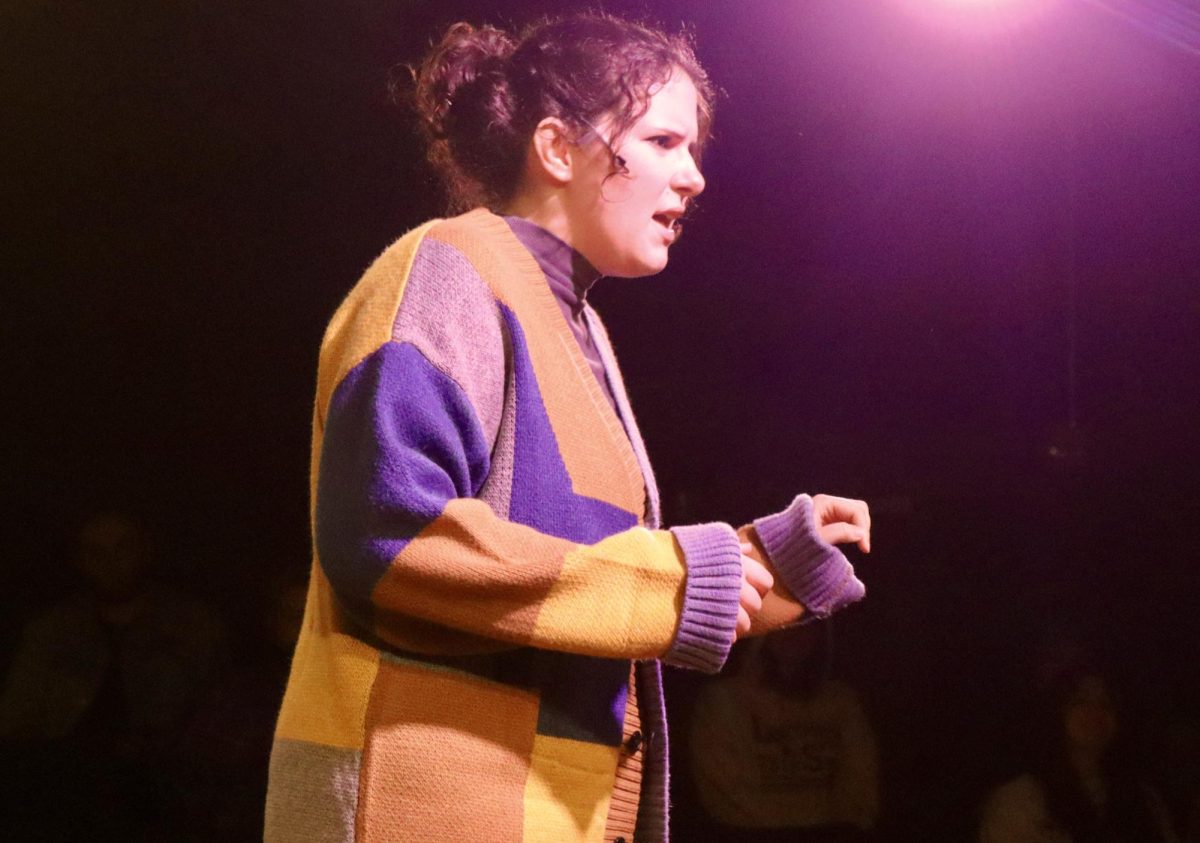Sometimes, things get so bad that you have no idea whether to laugh or cry. I cried a lot of tears this year—too many for my liking. I need a good laugh, and so does America.
On the surface, “Borat” appears to be a very superficial comedy. A racist caricature of a brown Asian man going to seemingly Shane Dawson levels of shock humor? Pass.
However, I watched it several years ago during a Skype date with a former boyfriend. I thought it was hilarious. I watched it again while preparing for this review and I still find it hysterical. But 14 years later, in the middle of a pandemic and one of America’s most tense election years to date, what does Borat have to offer now?
After the events of its predecessor, Borat Sagdiyev’s community turns him into a pariah. They strip him of his journalistic credentials, publicly humiliate him and sentence him to life in a gulag. However, the Premier sends him on a mission to deliver Kazakh Minister of Culture Johnny the Monkey to President Donald Trump.
Before he makes his way back to the “US and A,” a variety of things go wrong. He cannot offer the gift to Trump himself due to defecating in front of Trump International Hotel and Tower in the previous film. His travel buddy Azamat Bagatov died within the 14-year-gap. His rival neighbor stole his land and house. He realizes he has a 15-year-old daughter named Tutar, who sneaks onto a cargo ship after her father refuses to take her to the country. Not only that, but she disposes of Johnny the Monkey in the process.
Borat panics and goes to Plan B: offer a teen bride to Mike Pence to restore Kazakhstan’s image.
However, Tutar learns about America’s contemporary views on women’s rights and challenges Borat’s deep-seated misogyny. On top of that, Borat develops a closer relationship with his daughter and has to reassess if his plan is worth losing her.
Satire is a genre that received intense scrutiny throughout the 2010s. When attitudes towards sensitive subject matter change, satire risks becoming outdated or promoting the thing it claims to be against. Mel Brooks (a Jewish satirist whose filmography includes “The Producers” and “Blazing Saddles”) criticized how satire is dying because people do not want their sensibilities challenged. “Joker” director Todd Phillips (previously known for his “Hangover” trilogy) infamously said you cannot be funny in today’s woke culture.
I remember a quote from “Duckman,” of all things, in which an episode about offensive humor culminates with the main character giving a monologue at a comedy club.
“Comedy should provoke! It should blast through prejudices, challenge preconceptions! Comedy should always leave you different than when it found you. Sure, humor can hurt, even alienate, but the risk is better than the alternative: a steady diet of innocuous, child-proof, flavorless mush! Demand to be challenged, to be offended, to be treated like thinking, reasoning adults. And raise your children to be the same. Don’t let a comedian, a network, a Congressional committee, or an evil genius take away your freedom to laugh at whatever you want.”
What I take from that is the importance of comedy and satire lies in what it can achieve rather than what it could possibly destroy. Rather than assume all satire is dangerous and offensive, we should focus on deconstructing it and better understanding its ethics, as well as when somebody’s humor violates it.
I mentioned Shane Dawson earlier. Here is why his “satire” was a racist mess and why Cohen’s satire is structurally sound.
The basis of Shane Dawson’s humor was racism. His use of blackface or racial slurs had no substantive element or commentary behind them. He intended to offend audiences but he never said anything of value. His jokes were nothing more than a white guy saying the n-word or trying to make himself look like “Tar-Baby” levels of caricatured.
Here is some cultural context in relation to Cohen. Borat originated in Cohen’s “Da Ali G Show,” which ran from 2000 to 2004. Within that timespan, 9/11 happened. In the aftermath, Muslims, Arab people and Middle Eastern people were considered public enemy number one. Something to note is the people targeted are not one and the same. One is a religious category of people, one is an ethnolinguistic category and one is a geographical category.
Another thing to note is Borat does not fit into any of these categories. He does not speak Arabic, he does not worship Islam and Kazakhstan is generally not considered a Middle Eastern country. However, because of his appearance, his broken English, his foreign mannerisms and his misogynistic mentality, he presented himself as a prime target for ignorant white Americans—and that is how Sacha draws them in.
What makes the satire of “Borat” work is the purpose of Borat Sagdiyev as a character. Cohen lures unsuspecting people in with his character’s outrageous behavior, such as bringing a chicken in his luggage onto a train or masturbating in front of a Victoria’s Secret shop. He talks about rape, incest, child brides and prostitution as though they are normalized activities within his community.
Keep in mind Sacha Baron Cohen not only had to remain in character and fool the people around him, but he also improvised his material after assessing an individual and knowing what would get the best possible reaction from them. He is a ridiculous caricature but the people who out themselves as terrible people become the targets of ridicule. By doing this, Cohen shines a light on the uglier side of American culture and exposes the cracks in America’s façade as “the greatest country in the world.”
With that out of the way, I think the comedy and satire work exceptionally well in the sequel. I am surprised a character like Borat could exist in today’s political climate given the taboo nature of Cohen’s previous film. However, Cohen does something all satirists should do: adapt to what our culture needs the most.
The movie’s subplot about Tutar combating her father’s misogyny and Borat reevaluating his values do not come from a place of pandering or the need to earn congratulations from progressive audiences. It exists to acknowledge both the normalization of misogyny from the first film and the need for a shift in cultural perspective.
Something admirable about the film’s satire is applying the same modus operandi to the Trump administration, a political monolith people already consider to be a circus. When the humor exists to make a fool out of people who initially pegged you as one, how can you do that to a widely-criticized administration? Cohen’s dedication to his bit and his improv skills pay off in the best (and worst) of ways.
Maria Bakalova’s performance as Tutar surprised me. From what I hear, Cohen is lobbying for her to get an acting nomination at next year’s Academy Awards. All I can say is I am so here for it. Not only was she continuously hilarious as Borat’s teen daughter, but there is also a sentimentality to her performance that felt genuine. It did not feel like a cheap gimmick to keep you watching. If anything, I stayed for the duration of the film because of that element.
The only thing that bugs me about the humor is how self-referential it is at times. The first line is a reference to Borat’s “Not!” jokes from the previous film. A lot of the series of events, while hilarious, felt like Cohen was attempting to recreate the same chain reactions as he did before. It thankfully does not focus on it too much for my liking but it took me out of the movie at times.
Another thing people may not care for is the scripted story. When “Borat” came out, there was a loose story about him needing to find Pamela Anderson. However, it did not occupy the majority of the film to the point where it felt plastic. It is an organically told comedy with a balance between its scripted and unscripted bits.
“Brüno” came out three years after “Borat” but it did not receive the same level of acclaim as Cohen’s previous film. I suspect one of the reasons is the scripted story felt out of place in comparison to the unscripted segments. While the humor and pranks were not too different from “Borat,” the underlying story did not feel crucial to the end product. It could have been a straightforward satire without any attempts at emotional pith and it would have worked well.
The story in “Borat Subsequent Moviefilm” works in its favor, but it can toe the line for people who did not expect sentimentality or character development in a Cohen satire. However, it works for me because it did not detract from the humor or feel like extra fat the screenwriters needed to cut off. It fell into place with both the outrageous humor and the matured perspective of American culture.
I never thought I would say the guy who voiced King Julien XIII from the “Madagascar” trilogy is a satirical genius—but he is. Now that we are trying to move past shallow perceptions of minorities, we can hopefully enjoy the “Borat” films for its commentary rather than the sophomoric gratification of mimicking an immigrant’s voice and seeing him in a thong-like mankini. I want the next decade to be just as appreciative of the humor we overlook as we are towards the people we want to protect.
To put it plainly, “Borat Subsequent Moviefilm” is the start of making satire great again.







